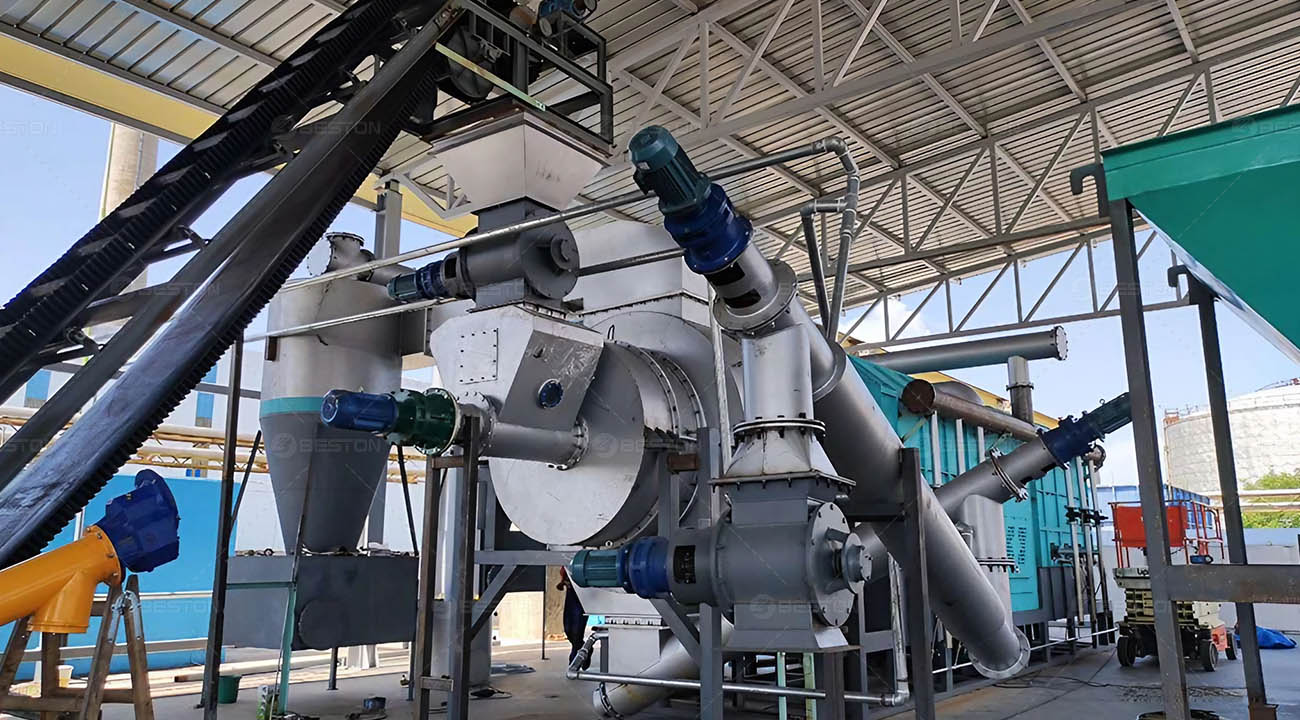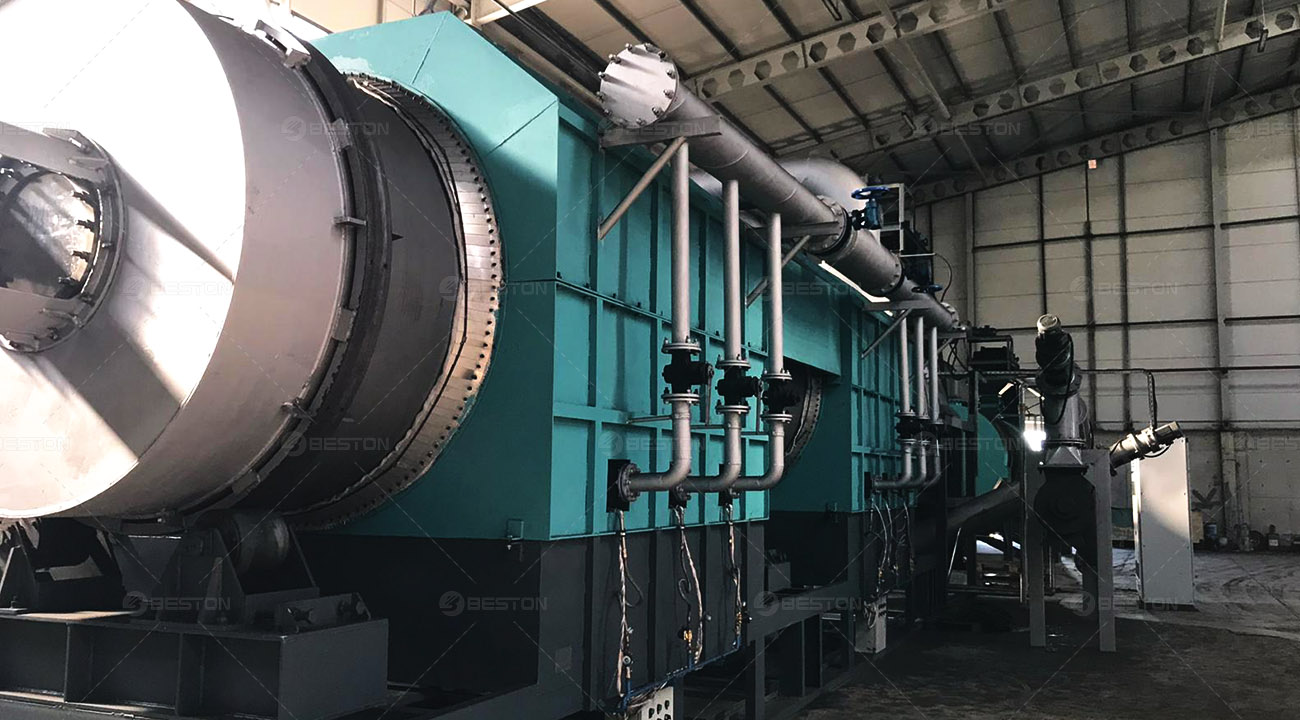Introduction
In the contemporary landscape of environmental consciousness, carbon credits have emerged as a pivotal tool for mitigating the impact of human activities on the climate. As industries strive for sustainability, the utilization of biochar production equipment has garnered attention as a viable means to earn valuable carbon credits. This article delves into the intricacies of this process, shedding light on how biochar production can become a lucrative avenue for those committed to environmental responsibility.

Understanding Carbon Credits
Carbon credits serve as a tangible representation of efforts to reduce or offset greenhouse gas emissions. In essence, they act as a financial incentive for entities to adopt eco-friendly practices. Biochar production enters this narrative as a commendable method for sequestering carbon, thereby contributing to the global effort to combat climate change. By understanding the significance of carbon credits, one can appreciate the role biochar production plays in this multifaceted strategy.
Biochar Production Equipment Overview
At the heart of the biochar revolution lies advanced biochar production equipment designed to convert biomass into biochar efficiently. Biochar, a stable form of carbon, is produced through a process known as pyrolysis. This involves heating biomass in the absence of oxygen, resulting in the decomposition of organic materials into a carbon-rich residue. Various types of biochar production equipment, ranging from continuous pyrolysis machines to rotary kilns, offer diverse options for businesses and industries looking to partake in carbon credit initiatives.

Carbon Sequestration Mechanisms in Biochar Production
The magic of biochar lies in its ability to sequester carbon effectively. The pyrolysis process not only converts biomass into a stable form of carbon but also prevents the release of carbon dioxide into the atmosphere. This dual benefit positions biochar production as a powerful tool for carbon sequestration. Understanding the mechanics of this process is crucial for businesses aiming to leverage biochar machine for carbon credit generation.
The process begins with the feeding of biomass into the pyrolysis machine, where it undergoes thermal decomposition in a controlled environment. The absence of oxygen during pyrolysis prevents complete combustion, leading to the production of biochar instead of ash. The remaining solid residue, rich in carbon, is the biochar that holds immense potential for carbon sequestration.
Biochar’s porous structure enhances its carbon-holding capacity and provides a stable environment for carbon to reside in the soil for an extended period. This significantly contributes to reducing the overall carbon footprint. As businesses delve into the intricacies of biochar production, the understanding of these sequestration mechanisms becomes crucial for optimizing carbon credit generation.
Certifications and Standards for Carbon Credits
While the concept of earning carbon credits through biomass pyrolysis plant is enticing, adherence to recognized certifications and standards is paramount. Entities venturing into biochar projects must ensure compliance with established criteria to validate their carbon credits. Certifications such as the Gold Standard for the Global Goals and the Verified Carbon Standard provide a framework for evaluating the legitimacy of carbon offset projects, instilling confidence in the market.
Achieving these certifications involves rigorous assessments of the entire biochar production process, from the sourcing of biomass to the final application of biochar. Stringent criteria ensure that the carbon offset project is not only effective in sequestering carbon but also adheres to social and environmental safeguards. This thorough validation process adds credibility to the earned carbon credits and aligns the project with global sustainability goals.
Economic and Environmental Benefits
The allure of earning carbon credits through biochar production extends beyond environmental stewardship. Businesses investing in biochar projects stand to gain economically through carbon credit incentives. Moreover, the environmental benefits are substantial, with biochar enhancing soil quality, reducing reliance on chemical fertilizers, and curbing greenhouse gas emissions. The symbiotic relationship between economic gain and environmental responsibility positions biochar production as a compelling avenue for those looking to make a positive impact.
The economic benefits of earning carbon credits can be substantial, providing a tangible return on investment for businesses. Governments and organizations worldwide are increasingly recognizing the value of sustainable practices, and offering financial incentives through carbon credit programs is one way to encourage the adoption of environmentally friendly technologies, such as biochar production equipment. You can contact Beston Group for more information on carbon sinks.
In addition to economic advantages, the environmental benefits of biochar production are multifaceted. Biochar-amended soil exhibits improved water retention, reducing the need for irrigation in agricultural settings. The stable carbon structure of biochar contributes to long-term soil fertility, reducing the reliance on synthetic fertilizers. As a result, not only do businesses earn carbon credits, but they also actively contribute to sustainable agricultural practices and mitigate the environmental impact of conventional farming.
Conclusion
In conclusion, the convergence of biochar production equipment and the carbon credit market offers a unique opportunity for industries to align profitability with environmental sustainability. By understanding the nuances of this process, businesses can embark on a journey that not only contributes to carbon mitigation efforts but also redefines their role in a world increasingly focused on a greener future. The synergy between earning carbon credits and promoting sustainable practices positions biochar production as a cornerstone in the quest for a more resilient and eco-friendly global ecosystem.